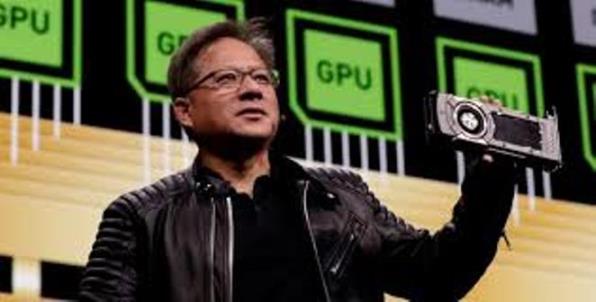Nvidia CEO Jensen Huang’s unexpected trip to Beijing, days after the U.S. blocked exports of its China-tailored H20 AI chip, has spotlighted the growing backlash against Washington’s trade restrictions, with experts warning of accelerating global economic fragmentation.
RELATED: DeepSeek AI breakthrough exposes Trump tariffs’ weakness
Huang’s visit, at the invitation of a Chinese government-linked trade group, followed the abrupt cancellation of Nvidia’s $5.5 billion China-market chip—a product designed to comply with earlier U.S. curbs. The move blindsided the semiconductor giant, which had reportedly secured assurances from U.S. officials just weeks prior.
“This isn’t just about Nvidia’s earnings—it’s a case study in how aggressive U.S. trade policies are pushing companies and nations into China’s orbit,” said Nigel Green, CEO of deVere Group, a top financial advisory firm. “By weaponizing export controls, Washington is accelerating a multipolar world order that sidelines American influence.”
Key Implications
- Tech Sector Fallout: Chinese tech giants Alibaba, Tencent, and ByteDance face AI development delays, while Nvidia warns of revenue losses.
- De-Dollarization Surge: BRICS nations and allies like Brazil and Saudi Arabia are expanding yuan reserves and bypassing the dollar in trade.
- Corporate Pragmatism: Firms in AI, energy, and infrastructure are prioritizing access to China’s $18 trillion market despite U.S. political risks.
Green emphasized that Trump’s “erratic” trade strategy has destabilized markets: “Sudden policy shifts on critical sectors like semiconductors force global players to build parallel systems. This isn’t strength—it’s self-sabotage.”
The Nvidia saga highlights the clash between Washington’s geopolitical posturing and corporate realities. After redesigning chips to meet U.S. rules, the company now faces exclusion from China—its third-largest market—with no clear alternatives.
“Jensen Huang’s Beijing trip sends a clear message: Business will flow where there’s continuity, not chaos,” Green added.
“Every unilateral U.S. restriction pushes the world closer to a China-centric economic bloc.”

































